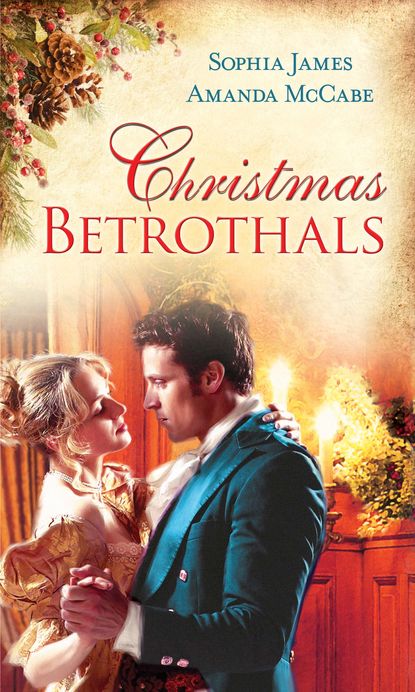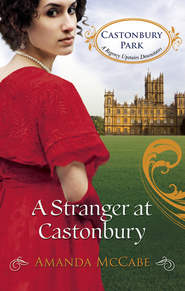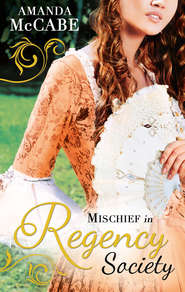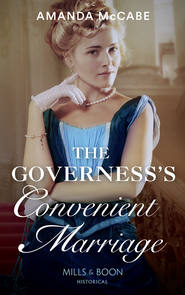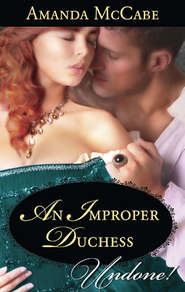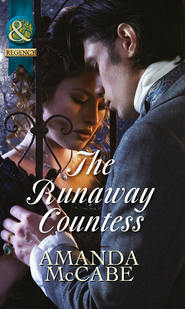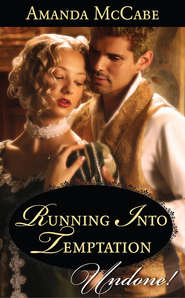По всем вопросам обращайтесь на: info@litportal.ru
(©) 2003-2024.
✖
Christmas Betrothals: Mistletoe Magic
Автор
Год написания книги
2019
Настройки чтения
Размер шрифта
Высота строк
Поля
A woman appeared behind him, a woman every bit as old as he was, her shawl wrapped tightly across a thin frame, spectacles balancing on her nose.
‘It is Mr Clairmont, Lizzie. Mr Clairmont, this is my wife, Mrs Poole’
Her eyes widened behind the glasses and the frown that had been there when he first saw her thickened.
‘We had word, of course, but we had not thought …’
Her words petered out as she stood beside her husband, both of them now looking across at his person as if they could not quite believe he was there.
‘May I come in?’
The request sent them into a whirl of activity and as the door was thrown wide open they stepped back.
The wide central portico was open to the roof, and the oversized windows let in a generous amount of light. He noticed that the floors were well scrubbed and that the banisters and woodwork had been polished until they shone. Not an unloved house, then, but one strapped by the lack of cash.
‘We are Jack and Lizzie Poole, sir,’ the woman said once the door was again fastened, ‘and we have served this estate for nigh on a century between us.’
Luc nodded, easily believing the length of time stated.
‘And where are the other servants who help you?’
‘Other servants, sir?’ Puzzlement showed on their brows.
‘The cook and the governess, the maids and the grooms. Where are they?’
‘It’s only us, sir, and it has been for a very long time.’
‘But there are children here?’
Both their eyes lit up. ‘Indeed there are. Miss Charity and Miss Hope and good girls they are at that.’
‘Who teaches them, then? Who sees to their lessons?’
‘There is nobody else.’
‘So I am to understand that it is just you and the two girls who live here and have done so for some months?’
‘Almost twelve months, sir, since the money stopped coming and they all up and left! Not us though, we could not stand around and see the wee ones homeless.’
Luc took in a breath and he swore he would visit Thackeray the instant he returned to town in order to get to the bottom of just where the funds had gone.
‘Where are the children? Could they be brought down?’
‘Down, sir?’
‘From the nursery?’
‘Oh, goodness gracious, they are seldom there. If it is a fine day they will be down by the lake, and if it is a wet one in their hut near the trees.’
This time he did laugh. Two little girls without the weight of the English society rules upon them promised to be interesting indeed. His own childhood had been much the same, a violent father whom he saw only intermittently and a mother who was never well. Perhaps these old people would have been an improvement!
A noise from one end of the hall had them turning and a child stood there. A thin pale child with the shortest hair he had ever seen on a girl of her age and large blue eyes.
‘Charity,’ Mrs Poole said as she walked forwards. ‘You are back early. Come and meet Mr Clairmont, dear, for he is just come from London.’
The girl’s teeth worried her bottom lip and her light glance was full of anxiety, but she allowed the woman to shuffle her forwards.
‘She does not speak as such since the passing of her mother, sir, but she will certainly know you.’
Did not speak? He had had little to do with children in his life and was at a loss as to how to deal with this one. Still he tried his best. ‘I would like to see your tree house one day.’
She nodded. At least she understood him without lip reading, her eyes trained upon the floor.
‘Her sister, Hope, will not be in till after dark. Will you be staying, sir?’
He wondered what Hope did for all of the hours of daylight, but with the lack of concern on all the faces before him refrained from asking the question.
‘I have not booked passage back to London until the morrow and I think there is much to discuss about this situation.’
Lizzie Poole looked at her husband and Charity clutched the old lady’s hand tighter, Luc calculating in a second that although there was not a lot here in the way of material richness, love was apparent. For that at least he was glad.
‘Jack here will see you to your room, Mr Lucas, and I will go to the kitchen to prepare some dinner. Charity love, will you give me a hand?’
When the child smiled the sun came out, her deep dimples etched into her cheeks and blue eyes dancing with laughter. A beauty, he thought suddenly, and Lillian Davenport came to mind. This girl had her sort of timeless elegance, even dressed as she was in a gown about two sizes too small and patched everywhere. He wondered what the sister would look like as he followed Jack Poole up the solid oak staircase.
Dinner consisted of two tiny cooked carcases he presumed to be wild fowl, a bowl full of boiled potatoes and a handful of greenery that looked like the watercress farmers in Virginia grew by the James.
‘The land provideth and the Lord taketh away,’ Mrs Poole told him sagely as they sat at a table in the kitchen, the fire in the oven behind a welcome asset to keep out the cold.
Hope was still outside, he presumed, as her place was empty. Charity sat next to him, her hands folded in her lap as she waited for grace to be said. A long and complex prayer of thanks it turned out to be too, a good five minutes having passed as Lizzie Poole gave acknowledgement for all the things that God had sent them, for their health and hearth and laughter, for the fuel which fed the fire and the earth which supported them. To Luc’s mind she seemed a trifle generous in her praise, the fowl in particular looking like they had seen but three months of life and barely eaten anything in that time. Still, it was refreshing to see gratefulness in small blessings and he wondered what she might say of the overladen London tables should she ever see them.
Just as they had finished the kitchen door banged open and an older child walked in. She looked nothing like her sister, except for her thin build, her hair a wild tangle of long deep brown curls and her skin darkened by the sun.
‘I am sorry to be so late, Lizzie,’ she said, stopping as bright emerald eyes met his own. Another beauty, but of a different mould.
‘This is Mr Lucas Clairmont, Hope. He has come from London today to see you and your sister.’
Hope’s eyes went to Charity’s and a communication passed between them. A silent language of perception and accord.
‘Very pleased to meet you, sir.’ She curtsied in a way reminiscent of another age.
‘Mrs Poole tells me you spend a lot of time outdoors. What things do you do there?’
‘We fish sometimes for the dinner table, and collect this cress. If we are lucky, we bag hares or wild birds and in the spring we steal the eggs from the nests that are low in the hedgerows.’
‘So this bounty is your doing?’ he replied, gesturing to the food on the table.
‘Some of it is, sir. Winter is the most difficult time to gather, but come spring we can find all sorts of berries and mushrooms and even wild tomatoes.’





